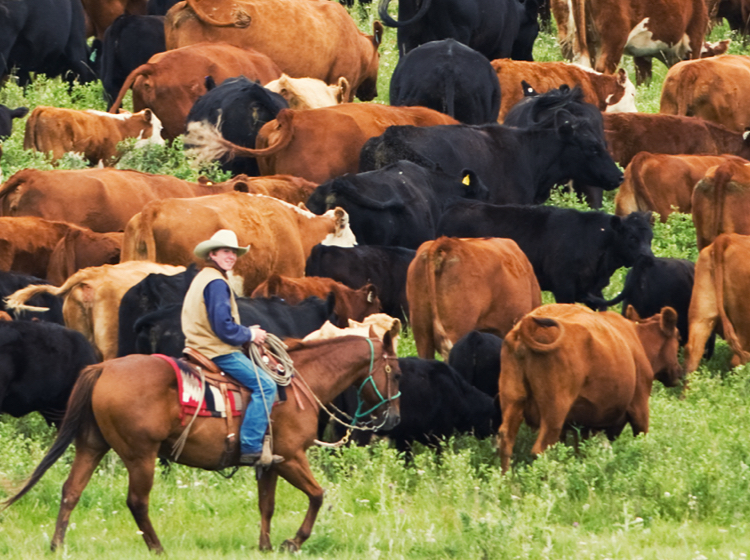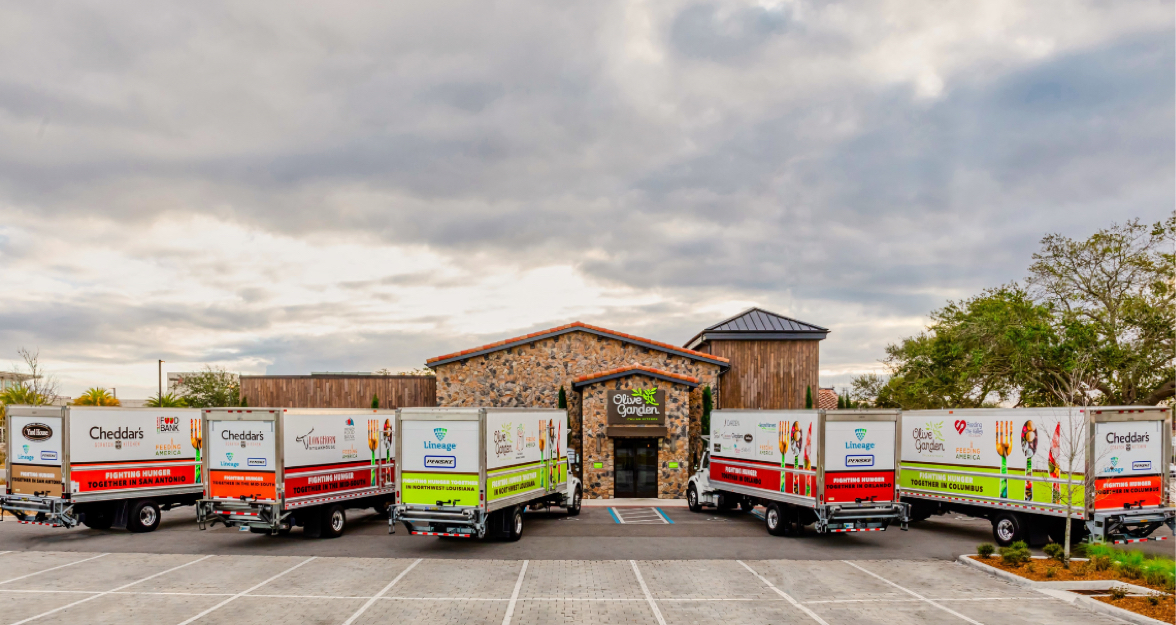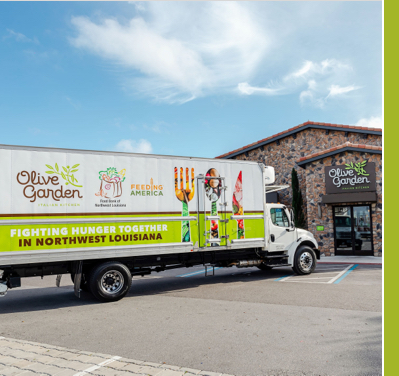Caring for Farm Animals
Caring for Farm Animals
We have a responsibility to ensure that animals are treated with respect and care in the process of providing nutritious food that is served in our restaurants. Our Animal Welfare Policy defines Darden’s position and outlines our approach and commitments to animal welfare.
Our Animal Welfare Policy
Darden takes animal welfare very seriously. A key tenet of our approach is to work with protein suppliers who are committed to the improvement of animal welfare. We expect our suppliers to share our commitment to the ‘Five Freedoms’ of care throughout the life of farm animals and to also provide a valid and verified animal welfare certification.
- Freedom from hunger and thirst
- Freedom from discomfort
- Freedom from pain, injury or disease
- Freedom to express normal behavior
- Freedom from fear and distress
Animal Welfare Council
In 2019, we established an Animal Welfare Council, which unites a cross-functional group of academics and thought leaders in the care of animals in food supply chains. This group is responsible for continued efforts to improve animal welfare outcomes and, most recently, mapped out a framework and process for working with chicken suppliers on key welfare areas, including medically important antibiotic usage.
Independent Advisors
Dr. Lily Edwards-Callaway
Assistant Professor of Animal Sciences
Colorado State University
Dr. Leonie Jacobs
Assistant Professor, Animal Welfare & Behavior
Virginia Tech
Dr. Janice Swanson
Professor, Director of Animal Welfare
Michigan State University
Consulting Advisors
Dr. Sara Crawford
Sustainable Environmental Consultants, Inc.
Mr. Øistein Thorsen
FAI Farms
Our Commitments to Animal Welfare
Improved Animal Welfare Outcomes: Our goal is that Darden’s suppliers will contribute to measurable improvements in animal welfare outcomes. Darden is working with our suppliers and industry peers, in conjunction with our Animal Welfare Advisory Council, to define and analyze these metrics.
Poultry: In partnership with our poultry suppliers, we will continue to seek improvements that result in healthy biological function, expression of natural behavior and humane processing.
Darden has collaborated with our Animal Welfare Council, our suppliers and consulting advisors to develop a program to collect and assess Key Welfare Indicators (KWIs) for broiler chickens at harvest facilities. The pilot program has begun to measure performance of outcomes-based KWIs from our broiler suppliers. The metrics for the study are based on nationally recognized audit standards such as NCC, FACTA, and IPWA audit tools, and international guidance on welfare indicators.
In FY23, Darden engaged with, and surveyed, our broiler suppliers on medically important antibiotics (MIA). We found that all of Darden's vertically integrated suppliers are compliant with FDA guidance for MIA and most were also compliant with guidance from the WHO. Darden will continue to engage with our suppliers and industry thought leaders on this topic.
Pork:
Since 2016, Darden has worked to increase the amount of pork it purchases from suppliers that utilize group housing for pregnant sows, as defined by the American Association for Swine Veterinarians (AASV). In FY24, approximately 56% of all pork purchased by Darden was from suppliers with group housing for sows.
Darden will continue to working toward the goal of sourcing pork that meets our culinary specifications, high quality standards and accessible pricing from suppliers with group housing systems for sows. In the near term, Darden will continue to engage with suppliers and industry associations on topics including housing, other welfare focus areas, GHG emissions, water usage and waste management.
Due to market conditions and supply constraints for some products, we are unable to forecast a timeline to source all pork from suppliers with group housing systems. Darden remains committed to ongoing progress and will share updates annually.
Eggs: 100% of all eggs purchased by Darden meet our specification that all egg products are from cage-free housing systems. We have engaged with our suppliers to develop strategies to manage supply constraints, and our international franchisees are working to source only cage-free eggs by the end of 2027.
Antibiotics: Darden requires its suppliers to comply with the FDA guidelines which recommend that antibiotics that are important in human medicine no longer be used with farm animals for growth purposes, and shared-class antibiotics (i.e., those used by both humans and animals) only be used to treat, prevent and control disease in farm animals under the supervision of a veterinarian. We will continue to monitor compliance that all of our land-based protein supply meets these guidelines.



 “As a restaurant company, we are uniquely positioned to make a meaningful difference in the fight against hunger, and we are proud to partner with Feeding America to make a positive impact in communities where it is needed most,” said Gene Lee, Chairman and CEO of Darden. “Mobile food pantries are an important tool to help food banks meet the increased need caused by the pandemic. These vehicles will help Feeding America food banks in five different states directly distribute a large supply of foodin their communities for years to come.”
“As a restaurant company, we are uniquely positioned to make a meaningful difference in the fight against hunger, and we are proud to partner with Feeding America to make a positive impact in communities where it is needed most,” said Gene Lee, Chairman and CEO of Darden. “Mobile food pantries are an important tool to help food banks meet the increased need caused by the pandemic. These vehicles will help Feeding America food banks in five different states directly distribute a large supply of foodin their communities for years to come.”















